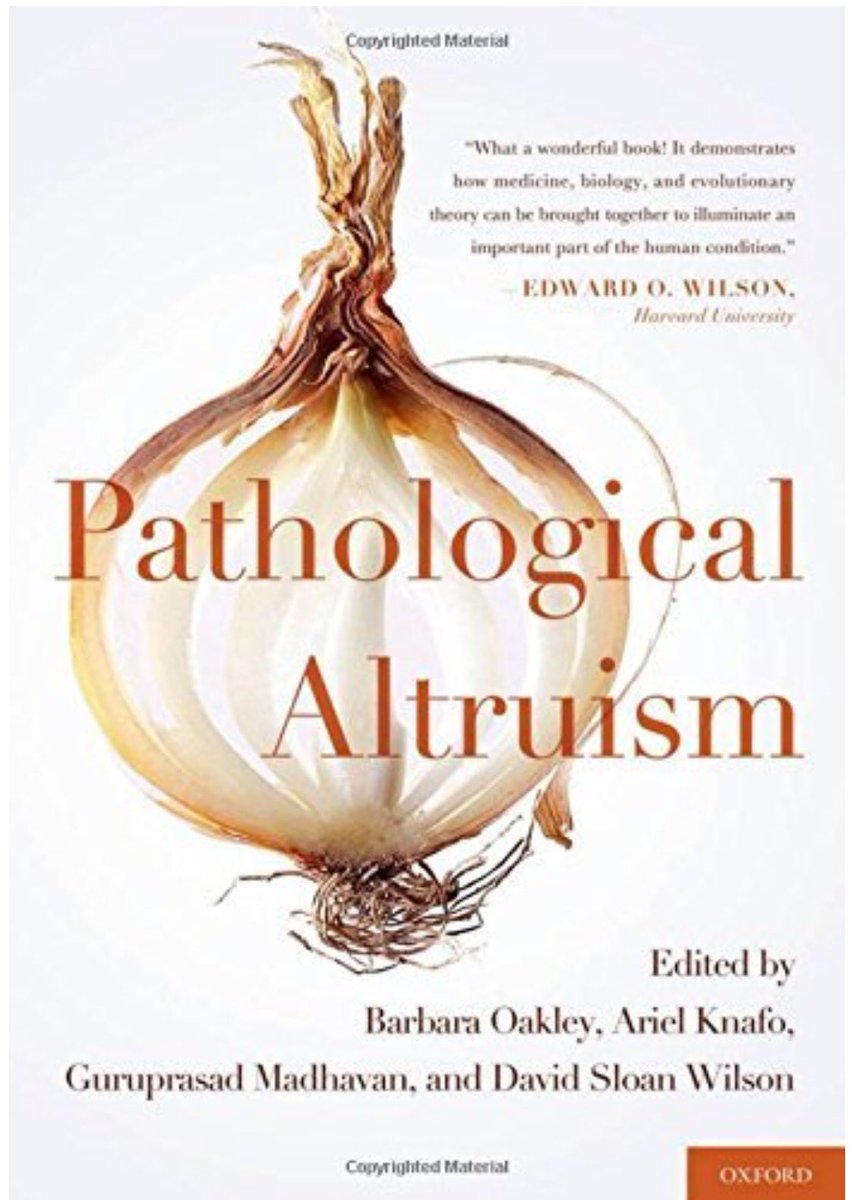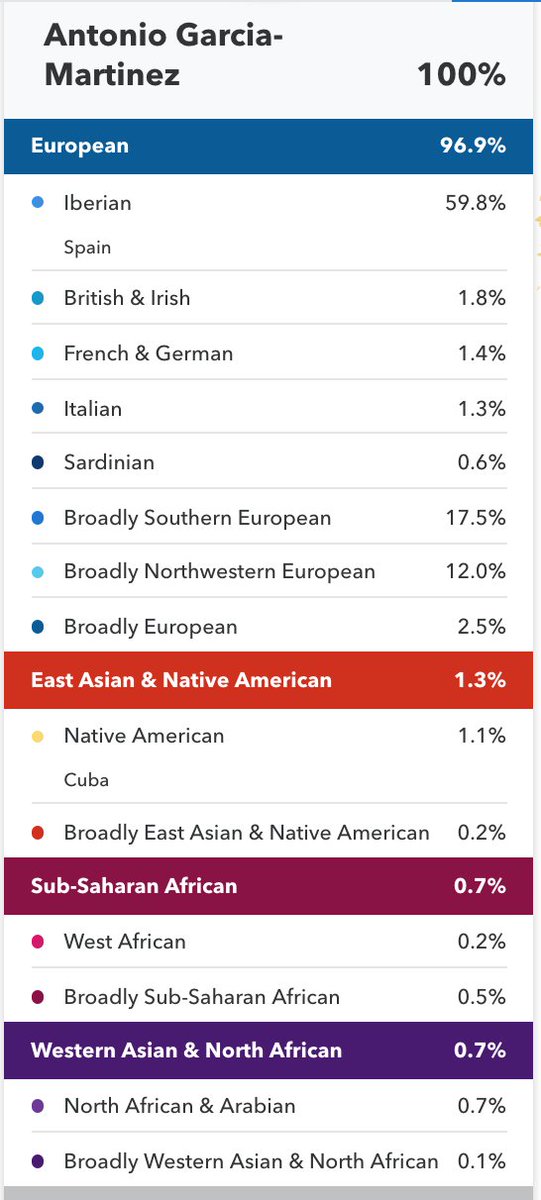
1/ questions raised by linked thread: What are some other significant traits of liberal thinking? One is the tendency to think WEIRDly. Another is the tendency to employ only 1/2 of the evolved psychological mechanisms of social cognition (and of those mostly just care/harm)
1/n Two interesting findings thus far from my analysis of Pew's March 2020 COVID-19 survey. First, white (and especially 'very') liberals are far more likely than all other ideological-racial subgroups to report being diagnosed with a mental health condition. pic.twitter.com/RynS9lk0jR
— Zach Goldberg (@ZachG932) April 11, 2020


Have we been looking at the partisan divide all wrong all along?
Aren’t all of these merely symptoms of deeper causes? Shouldn’t we be looking for THEM?
What we know now is that if the 1st principle of social psychology is “Intuitions come first, strategic reasoning follows,” then
“Psychology (or psychological profile) comes first, intuitions follow.”
We ARE wrong to be thinking, categorizing, analyzing, and concluding based on outdated anachronisms based on which side of the room proponents sat (i.e., left or right),
What if, they asked, reason DIDN’T evolve to help us find truth?
What if, instead, it DID evolve to help us WIN ARGUMENTS; persuade others that OUR intuitions are the RIGHT ones?
More from All
Unfortunately the "This work includes the identification of viral sequences in bat samples, and has resulted in the isolation of three bat SARS-related coronaviruses that are now used as reagents to test therapeutics and vaccines." were BEFORE the

chimeric infectious clone grants were there.https://t.co/DAArwFkz6v is in 2017, Rs4231.
https://t.co/UgXygDjYbW is in 2016, RsSHC014 and RsWIV16.
https://t.co/krO69CsJ94 is in 2013, RsWIV1. notice that this is before the beginning of the project
starting in 2016. Also remember that they told about only 3 isolates/live viruses. RsSHC014 is a live infectious clone that is just as alive as those other "Isolates".
P.D. somehow is able to use funds that he have yet recieved yet, and send results and sequences from late 2019 back in time into 2015,2013 and 2016!
https://t.co/4wC7k1Lh54 Ref 3: Why ALL your pangolin samples were PCR negative? to avoid deep sequencing and accidentally reveal Paguma Larvata and Oryctolagus Cuniculus?
You May Also Like
What a weekend celebrating makers looks like.
A thread
👇Read on
Let's start with a crazy view of what @ProductHunt looked like on Sunday
Download image and upload
A top 7 with:
https://t.co/6gBjO6jXtB @Booligoosh
https://t.co/fwfKbQha57 @stephsmithio
https://t.co/LsSRNV9Jrf @anthilemoon
https://t.co/Fts7T8Un5M @J_Tabansi
Spotify Ctrl @shahroozme
https://t.co/37EoJAXEeG @kossnocorp
https://t.co/fMawYGlnro
If you want some top picks, see @deadcoder0904's thread,
We were going to have a go at doing this, but he nailed it.
It also comes with voting links 🖐so go do your
#24hrsstartup was an amazing event
— Akshay Kadam(A2K) \U0001f47b (@deadcoder0904) November 19, 2018
I never went to a hackathon but this just felt like one even though I was just watching \U0001f440
Everyone did great but there were a few startups that I personally loved \U0001f496
Some of my favorites are in the thread below\U0001f447
Over the following days the 24hr startup crew had more than their fair share of launches
Lots of variety: web, bots, extensions and even native apps
eg. @jordibruin with
\U0001f3a8\U0001f3c3\u200d\u2640\ufe0f DrawRun just launched on Product Hunt! Idea to App Store to Product Hunt in 68 hours!\u2070\u2070https://t.co/mxnLZ8FRSu
— Jordi Bruin (@jordibruin) November 20, 2018
Thanks for the motivation @thepatwalls @arminulrich @_feloidea
1. IQ is one of the most heritable psychological traits – that is, individual differences in IQ are strongly associated with individual differences in genes (at least in fairly typical modern environments). https://t.co/3XxzW9bxLE

2. The heritability of IQ *increases* from childhood to adulthood. Meanwhile, the effect of the shared environment largely fades away. In other words, when it comes to IQ, nature becomes more important as we get older, nurture less. https://t.co/UqtS1lpw3n

3. IQ scores have been increasing for the last century or so, a phenomenon known as the Flynn effect. https://t.co/sCZvCst3hw (N ≈ 4 million)
(Note that the Flynn effect shows that IQ isn't 100% genetic; it doesn't show that it's 100% environmental.)

4. IQ predicts many important real world outcomes.
For example, though far from perfect, IQ is the single-best predictor of job performance we have – much better than Emotional Intelligence, the Big Five, Grit, etc. https://t.co/rKUgKDAAVx https://t.co/DWbVI8QSU3

5. Higher IQ is associated with a lower risk of death from most causes, including cardiovascular disease, respiratory disease, most forms of cancer, homicide, suicide, and accident. https://t.co/PJjGNyeQRA (N = 728,160)
















